Beloved heritage hawker stall Tan’s Tutu Coconut Cake at Havelock Food Centre has officially shut its doors, following the passing of its owner, Tan Bee Hua, aged 63, on July 29, 2025.
In an interview with 8days.sg, her nephew Jacky Tan, a project manager in his 50s, confirmed that the stall will not be reopening. Tan passed away due to medical issues, though the family prefers not to elaborate.
The stall’s closure marks the end of a family legacy that dates back over 80 years.
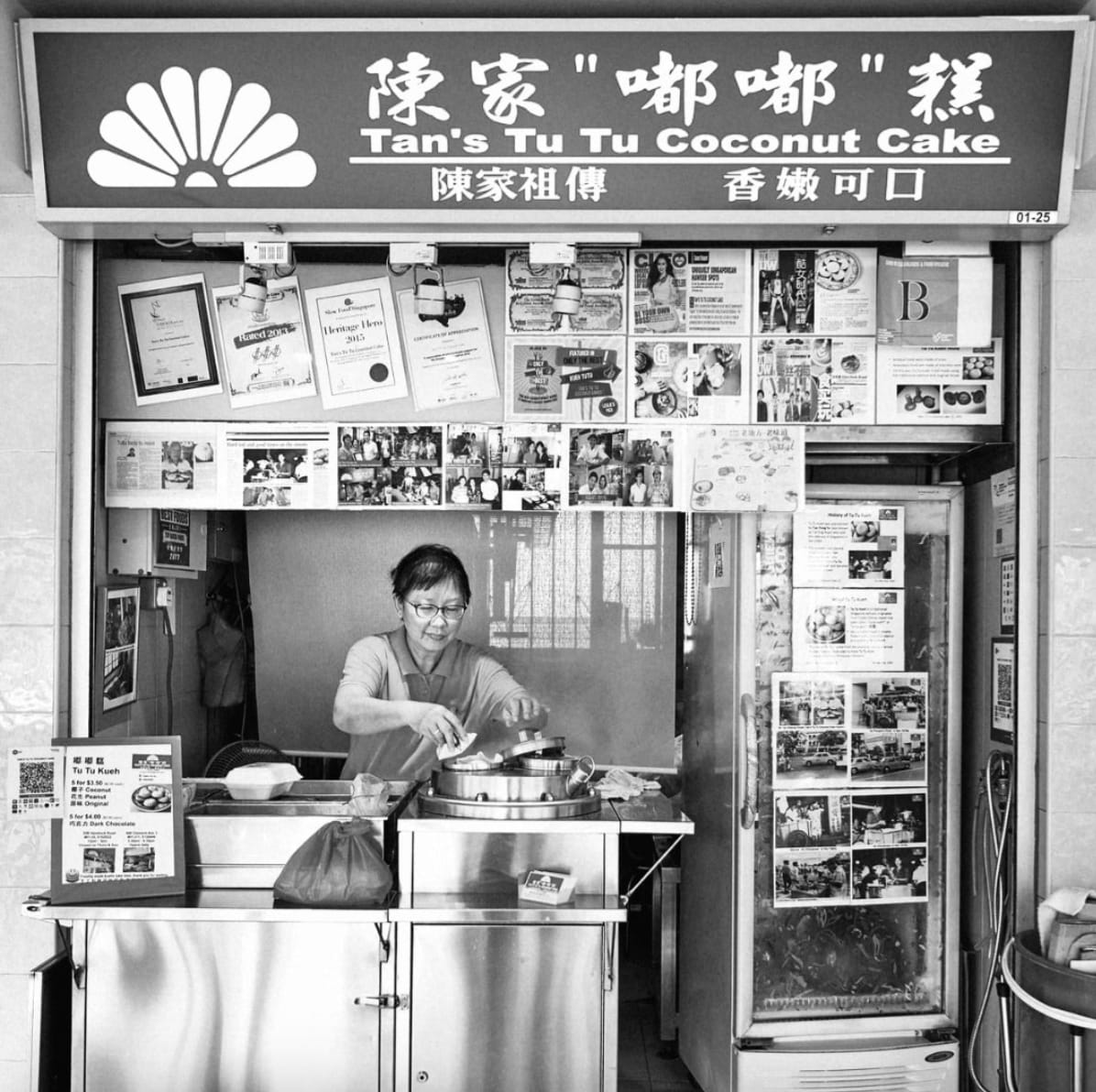
No one in the family willing to continue biz
“She tried to find someone to take over,” shares Jacky. “But no one in the family is available to continue on. Most of them have their own priorities. ”
Tan was single and had no children, and despite her efforts to preserve the business, the physical demands and long hours proved too much for most people to commit to.
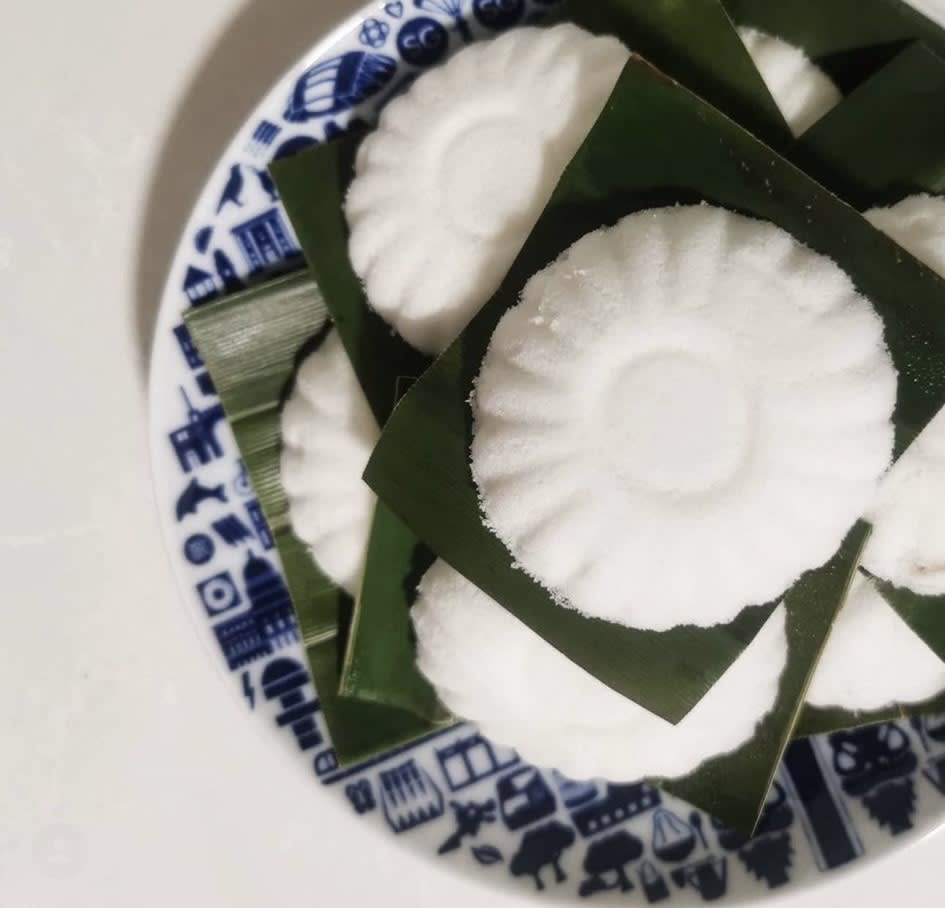
Photo: Instagram/Ziggy06
“She worked seven days a week, every single day”
“It’s really not easy. Long hours, manual effort, and many other factors like rising costs of rental, manpower and raw materials. Yet, there’s always this perception that hawker food must be cheap and good,” says Jacky.
He adds, “She worked seven days a week, every single day, just to keep the stall running. It’s very taxing, not just for her, but for many hawkers.”
Tan ran the stall in recent years with the help of family members. “My sister, niece and nephew helped too – we’ve all been involved since young,” says Jacky. His mother, Mdm Ho, has also supported the stall behind the scenes.
Mdm Ho, now in her 80s, has been faithfully assisting Tan with the making of tutu kueh for the past 50 years. However, she’s now too old to continue with the physically demanding work.
Some potential investors had expressed interest in the business at one point, though nothing came to fruition.
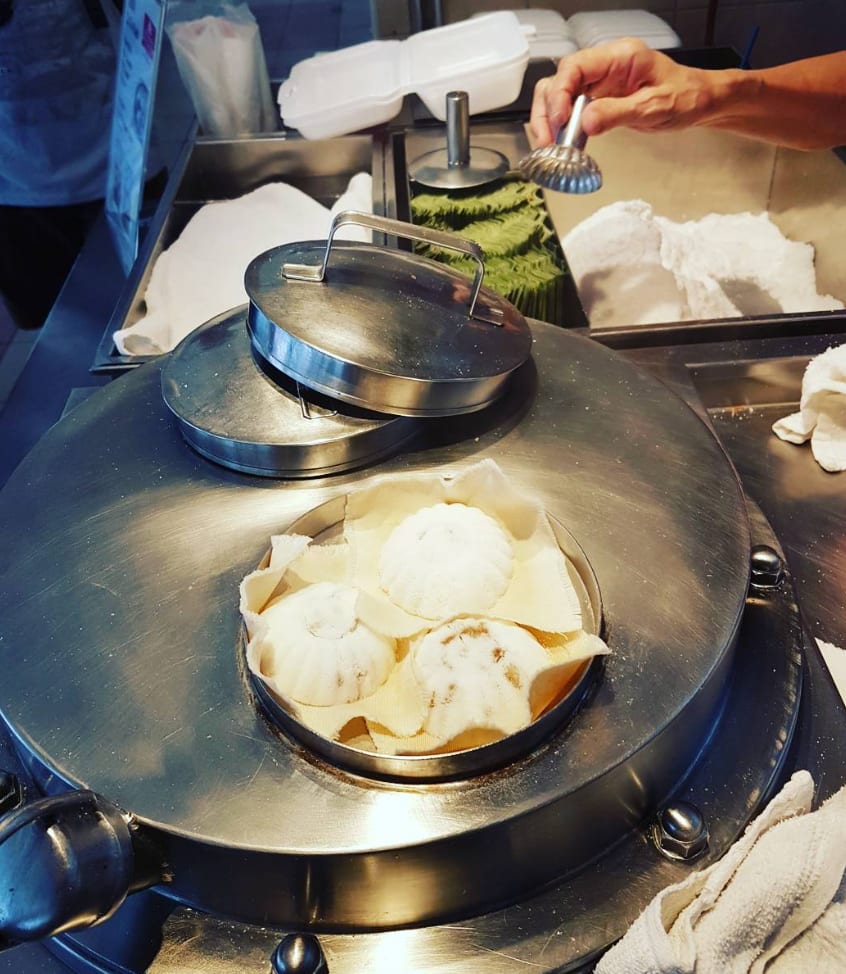
Five pieces for $3.50
At just $3.50 for five pieces, the tutu kueh was one of the most affordable heritage snacks around. But even with steady queues and a loyal customer base, Jacky described the profit margins as “just decent enough for survival”.
Tan’s dedication to making everything from scratch — from hand-sieving finely ground rice flour to slow-cooking grated coconut in gula melaka, meant that each piece of tutu kueh was the product of painstaking labour. Her sister-in-law used to wake up at 4am once a week to prepare the pandan leaves.
“She really put in a lot of effort. But as with many traditional trades, the younger generation just isn’t keen to carry it on,” says Jacky.
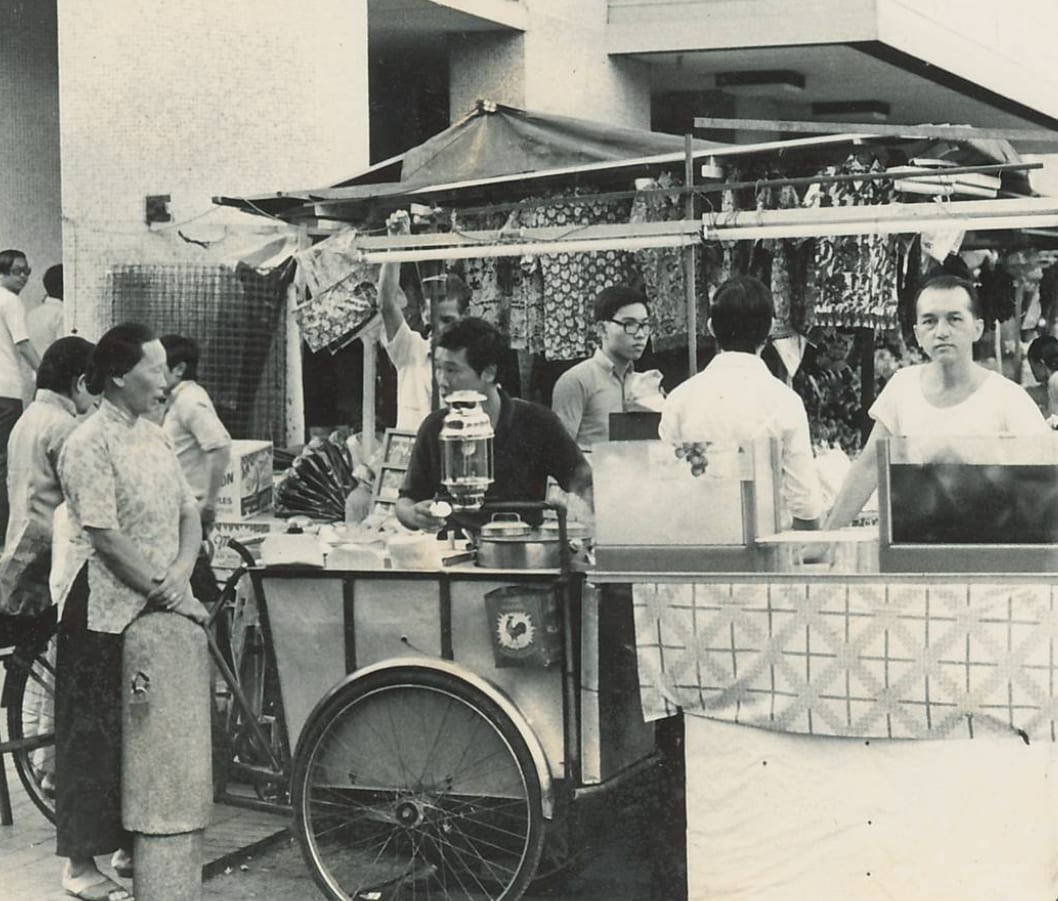
Tan’s Tu Tu Coconut Cake founder Tan Cheong Chuan (Ms Tan’s brother, in dark shirt) at People’s Park in the ’70s
“Everyday, there was a queue for it”
In 2004, Tan left her 25-year office job to take over the tutu kueh stall after her brother, Cheong Chuan, passed away.
What makes the closure especially bittersweet is that this wasn’t just any tutu kueh stall – it was run by the very family who invented the snack. Tan’s late father, Tan Yong Fa, had migrated from Hainan to Singapore in 1932, where he began selling song gao (a plain Hainanese rice cake ) from a pushcart before eventually creating the iconic steamed rice flour cake filled with coconut or peanuts, now known as tutu kueh.
The family once sold their snacks from pushcarts at Cathay, Great World Amusement Park, and Smith Street before moving into hawker centres in the 1970s, when Tan’s brother Tan Cheong Chuan took over the biz and renamed it Tan’s Tutu Coconut Cake.
Even in recent years, the stall maintained a strong following. “Every day, there was a queue for it,” Jacky recalls.
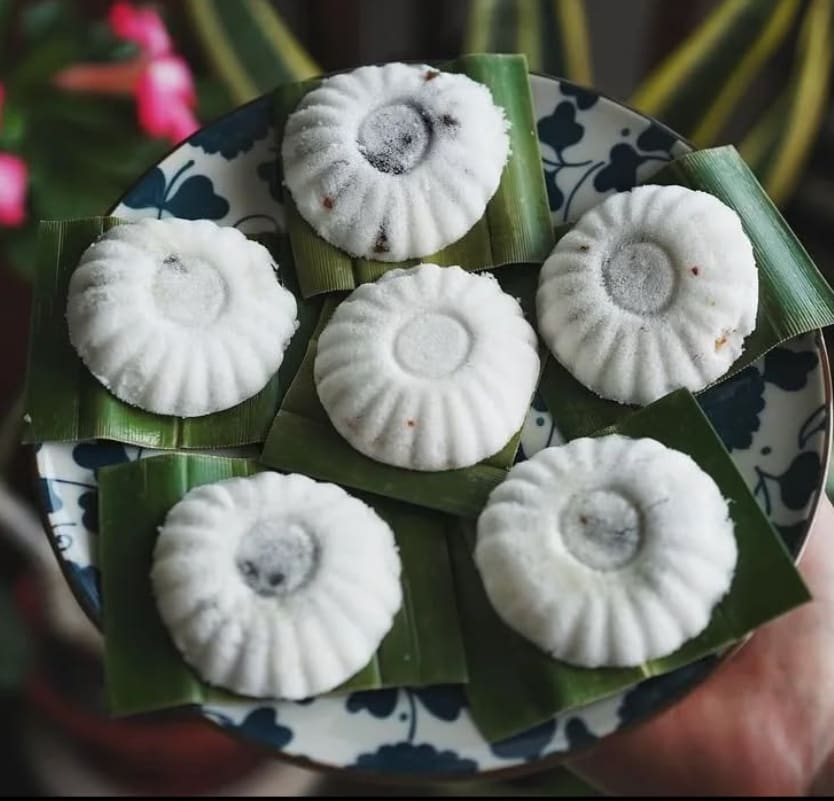
“Her passing is more significant than we know”
In a poignant tribute on Facebook, KF Seetoh, founder of Makansutra and longtime advocate for Singapore’s hawker culture, described Tan Bee Hua’s passing as “more significant than we know”.
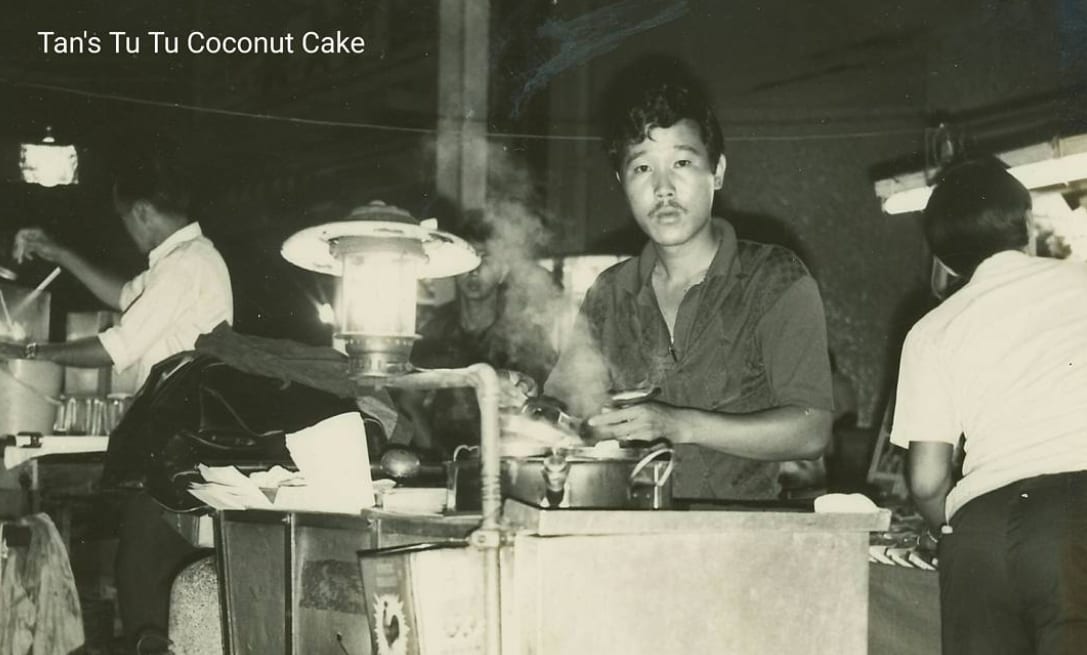
Miss Tan’s brother selling kueh tutu from a mobile cart in the 1970s
“It was her late father Tan Yong Fa who invented Tu Tu kueh here, a true bite of Sg culinary heritage,” he wrote. He recalled how the family’s original pushcart was once displayed at the old National Museum, and how Tan’s handmade snacks stood in stark contrast to the mass-produced factory versions now commonly found in plastic boxes.
“The sadder truth is such snacks are losing their future in our food scene… especially if it’s handmade with love and pride. It’s a financial black hole,” he added.
Seetoh went on to thank the Tan family for their bravery and legacy, “Your star can certainly shine bright and proudly above all the National Day proceedings next month.”
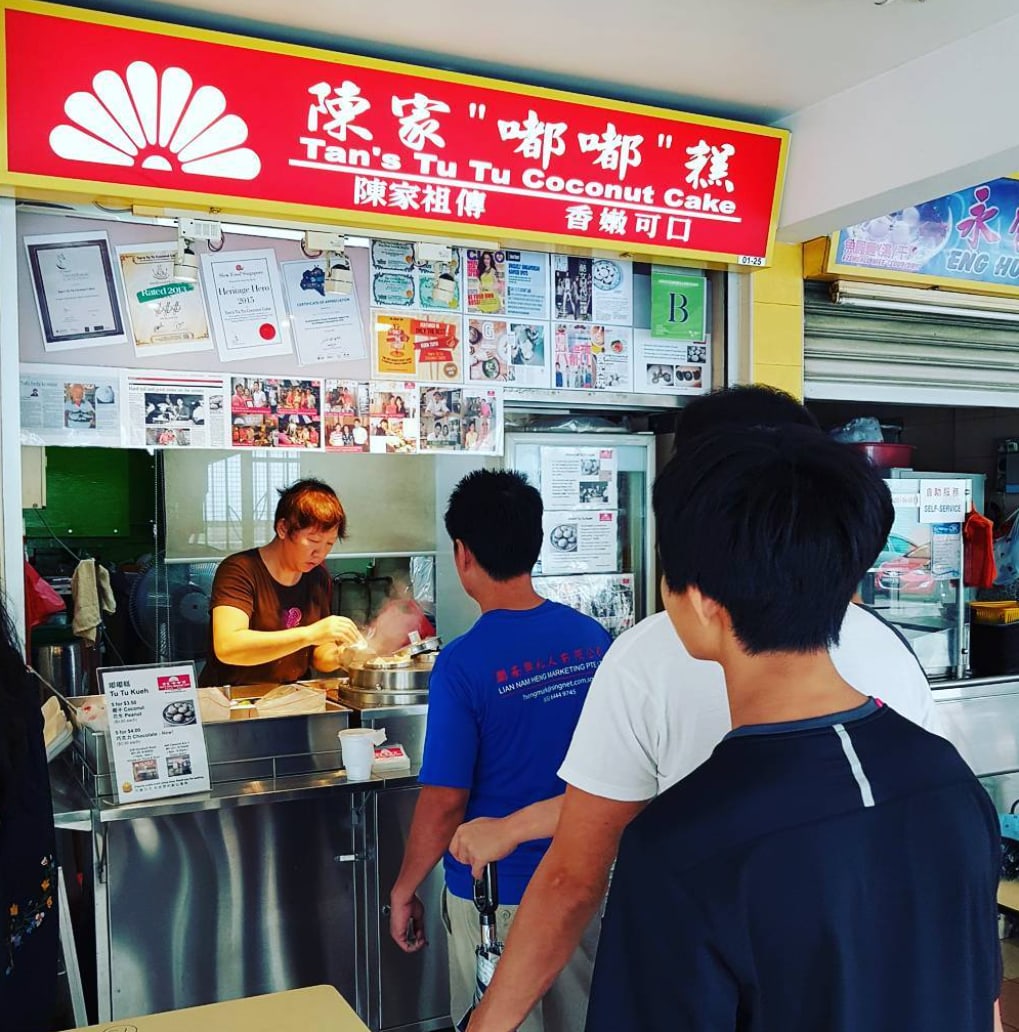
“Auntie Tan”, as many regulars fondly called her, leaves behind a legacy not just of kueh, but of perseverance and a deep respect for tradition.
“She always took pride in perfecting her tutu kueh to contribute to Singapore’s rich food heritage,” her family wrote in a tribute. “She will always live in our memories.”
8days.sg is now on #tiktok! Follow us on www.tiktok.com/@8dayseat.
Top In Asia





